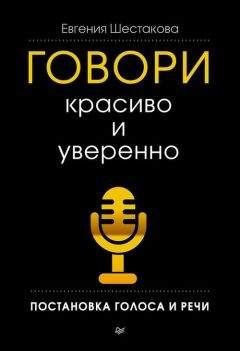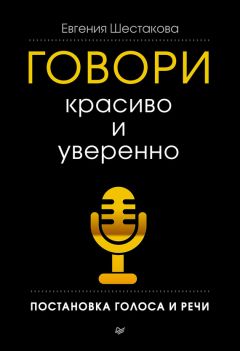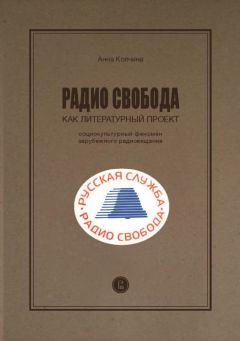Фрэнсис Фитцджеральд - Английский язык с Ф. Скоттом Фитцджеральдом. Алмаз величиной в отель «Риц» / Francis Scott Fitzgerald. The Diamond As Big As The Ritz
laugh [lRf], break [breIk], hour [aVq]
"What a car!" cried John again, in amazement.
"This thing?" Percy laughed. "Why, it's just an old junk we use for a station wagon."
By this time they were gliding along through the darkness toward the break between the two mountains.
"We'll be there in an hour and a half," said Percy, looking at the clock. "I may as well tell you it's not going to be like anything you ever saw before."
If the car was any indication of what John would see (если автомобиль был /хоть/ каким-то намеком на то, что Джон увидит /в дальнейшем/; indication — указание; намек, подсказка; знак, признак), he was prepared to be astonished indeed (/то/ он поистине был готов изумляться: «быть удивленным /кем-то/ по-настоящему»; to astonish — изумлять, поражать, удивлять; indeed — в самом деле, действительно; конечно, несомненно). The simple piety prevalent in Hades (простая/наивная набожность, свойственная жителям Гадеса; prevalent — распространенный, общепринятый; преобладающий) has the earnest worship of and respect for riches as the first article of its creed (имеет = включает в себя в качестве первого догмата своей веры искреннее/ревностное поклонение богатству и почтительное /к нему/ отношение; article — статья; параграф, пункт; церковный догмат; creed — кредо, символ веры; мировоззрение; вероисповедание) — had John felt otherwise than radiantly humble before them (если бы Джон чувствовал/испытывал перед ним что-нибудь иное, кроме блаженного смирения: «чувствовал себя пред ним иначе как блаженно смиренно»; otherwise — иначе; иным образом; по-другому; radiant — лучистый, сияющий; радостный, сияющий от счастья), his parents would have turned away in horror at the blasphemy (родители отвернулись бы /от него/ в ужасе от /такого/ кощунства).
They had now reached and were entering the break between the two mountains (теперь они /уже/ достигли пролома/ущелья между двумя горами и /как раз/ въезжали /в него/) and almost immediately the way became much rougher (почти сразу же дорога стала гораздо более неровной).
prevalent ['prevqlqnt], immediately [I'mJdIqtlI], rough [rAf]
If the car was any indication of what John would see, he was prepared to be astonished indeed. The simple piety prevalent in Hades has the earnest worship of and respect for riches as the first article of its creed — had John felt otherwise than radiantly humble before them, his parents would have turned away in horror at the blasphemy.
They had now reached and were entering the break between the two mountains and almost immediately the way became much rougher.
"If the moon shone down here (если бы луна светила = пробивалась сюда вниз; to shine), you'd see that we're in a big gulch (ты бы увидел, что мы сейчас в большом глубоком ущелье; gulch — узкое глубокое ущелье)," said Percy, trying to peer out of the window (пытаясь разглядеть что-нибудь за окном; to peer — вглядываться; изучать). He spoke a few words into the mouthpiece (он сказал несколько слов в трубку /переговорного устройства/; mouthpiece — мундштук; /телефонная/ трубка; раструб; /зд./ трубка для переговоров с водителем) and immediately the footman turned on a search-light (тотчас же ливрейный лакей включил прожектор; to turn — поворачивать; to turn on — включать) and swept the hillsides with an immense beam (и скользнул по склонам громадным лучом; to sweep — мести, подметать; скользнуть /взглядом/, /бегло/ осматривать).
"Rocky, you see (видишь, сплошные камни; rocky — каменистый, скалистый). An ordinary car would be knocked to pieces in half an hour (обычный автомобиль разбило/разнесло бы на куски за полчаса; to knock — бить, ударять). In fact, it'd take a tank to navigate it unless you knew the way (собственно, понадобился бы танк, чтобы проехать здесь, если не знаешь дороги; to navigate — совершать плавание /на судне/; летать /на самолете/; управлять; проходить, преодолевать /что-л. на корабле, самолете и т. п./). You notice we're going uphill now (обрати внимание, теперь мы поднимаемся; uphill — в гору; hill — возвышенность, холм; подъем)."
mouthpiece ['maVTpJs], ordinary ['Ld(q)n(q)rI], notice ['nqVtIs]
"If the moon shone down here, you'd see that we're in a big gulch," said Percy, trying to peer out of the window. He spoke a few words into the mouthpiece and immediately the footman turned on a search-light and swept the hillsides with an immense beam.
"Rocky, you see. An ordinary car would be knocked to pieces in half an hour. In fact, it'd take a tank to navigate it unless you knew the way. You notice we're going uphill now."
They were obviously ascending (они явно двигались вверх), and within a few minutes the car was crossing a high rise (через несколько минут машина /уже/ находилась в высшей точке подъема «переваливала через …» to cross — пересекать, переходить; переправляться), where they caught a glimpse of a pale moon newly risen in the distance (где = откуда они на мгновение увидели бледную луну, недавно взошедшую вдали; to catch a glimpse of smth. — увидеть что-л. на мгновение, на минуту, мельком; to catch — ловить; поймать; glimpse — проблеск; мелькание; мимолетное впечатление). The car stopped suddenly (машина внезапно остановилась) and several figures took shape out of the dark beside it (несколько фигур возникли около нее из темноты; shape — форма, очертание; to take shape — складываться, формироваться, вырисовываться) — these were negroes also (это были тоже негры). Again the two young men were saluted in the same dimly recognizable dialect (снова юношей приветствовали на том же едва понятном диалекте; dimly — тускло; неясно, смутно, непонятно; to recognize — узнавать, опознавать; распознавать); then the negroes set to work (затем негры принялись за работу) and four immense cables dangling from overhead (четыре гигантских троса/каната, свисающих сверху; overhead — над головой; вверху; head — голова) were attached with hooks to the hubs of the great jeweled wheels (были прикреплены крюками к втулкам/ступицам огромных, украшенных драгоценными камнями колес). At a resounding "Hey-yah!" (при гулком "Э-гей!" = раздалось "Э-гей!"; to resound — громко звучать, раздаваться; отдаваться эхом) John felt the car being lifted slowly from the ground (почувствовал, что автомобиль медленно отрывается; «поднимается /кем-то/» от земли) — up and up (/поднимается все/ выше и выше; up — вверх, наверх, вверху) — clear of the tallest rocks on both sides (над самыми высокими скалами с обеих сторон; clear — светлый, ясный; чистый; clear of smth. — свободный /от чего-л./, необремененный /чем-л./; в стороне, на расстоянии от /чего-л./, не касаясь /чего-л./) — then higher (потом /еще/ выше), until he could see a wavy, moonlit valley (пока он не увидел: «смог увидеть» волнистую, залитую лунным светом долину; wave — волна; волнистость; to light / прич. lit/ — освещать; светить) stretched out before him in sharp contrast to the quagmire of rocks (простирающуюся перед ним в резком контрасте с нагромождением скал; quagmire — болото, трясина; затруднительное положение) that they had just left (которое они только что покинули; to leave). Only on one side was there still rock (только с одной стороны еще были скалы) — and then suddenly there was no rock beside them or anywhere around (потом вдруг их не осталось ни рядом с ними, ни где-либо вокруг).
ascend [q'send], risen ['rIz(q)n], quagmire ['kwOgmaIq, 'kwxg-]
They were obviously ascending, and within a few minutes the car was crossing a high rise, where they caught a glimpse of a pale moon newly risen in the distance. The car stopped suddenly and several figures took shape out of the dark beside it — these were negroes also. Again the two young men were saluted in the same dimly recognizable dialect; then the negroes set to work and four immense cables dangling from overhead were attached with hooks to the hubs of the great jeweled wheels. At a resounding "Hey-yah!" John felt the car being lifted slowly from the ground — up and up — clear of the tallest rocks on both sides — then higher, until he could see a wavy, moonlit valley stretched out before him in sharp contrast to the quagmire of rocks that they had just left. Only on one side was there still rock — and then suddenly there was no rock beside them or anywhere around.
It was apparent that they had surmounted some immense knife-blade of stone (было очевидно, что они перенеслись через какой-то громадный каменный клинок; surmount — преодолевать; пересекать; перебраться; knife-blade — лезвие ножа), projecting perpendicularly into the air (вертикально выступающий/торчащий в небо: «воздух»). In a moment they were going down again (через мгновение они /уже/ опускались вниз), and finally with a soft bump they were landed upon the smooth earth (и вскоре с мягким стуком коснулись ровной земли; land — земля, суша; to land — приземляться, делать посадку; приземлять, опускать на землю; высаживать).
"The worst is over (худшее позади)," said Percy, squinting out the window (глянув в окно; to squint — щуриться; смотреть искоса; бросить взгляд). "It's only five miles from here (отсюда всего пять миль), and our own road — tapestry brick — all the way (наша собственная дорога — облицовочный кирпич — до самого дома: «весь путь»). This belongs to us (это /уже/ принадлежит нам). This is where the United States ends, father says (здесь кончаются Соединенные Штаты, /как/ говорит отец)."
"Are we in Canada (мы в Канаде)?"
"We are not (нет). We're in the middle of the Montana Rockies (мы в центре Скалистых гор в Монтане; Rockies — сокр. от Rocky Mountains). But you are now on the only five square miles of land in the country (но ты сейчас находишься на /тех/ единственных = особых пяти квадратных милях земли/территории в стране) that's never been surveyed (где никогда не производилась топографическая съемка: «которая /земля/ никогда не осматривалась /топографами/»; to survey — внимательно осматривать; тщательно изучать, исследовать; производить топографическую или геодезическую съемку)."
"Why hasn't it (почему; hasn't = has not /been surveyed/)? Did they forget it (забыли)?"
apparent [q'pxrqnt], perpendicularly ["pWp(q)n'dIkjVlqlI], survey [sW'veI]
It was apparent that they had surmounted some immense knife-blade of stone, projecting perpendicularly into the air. In a moment they were going down again, and finally with a soft bump they were landed upon the smooth earth.
"The worst is over," said Percy, squinting out the window. "It's only five miles from here, and our own road — tapestry brick — all the way. This belongs to us. This is where the United States ends, father says."
"Are we in Canada?"
"We are not. We're in the middle of the Montana Rockies. But you are now on the only five square miles of land in the country that's never been surveyed."
"Why hasn't it? Did they forget it?"
"No," said Percy, grinning (улыбаясь/усмехаясь), "they tried to do it three times (они три раза пытались это сделать). The first time my grandfather corrupted a whole department of the State survey (первый раз мой дед подкупил все геодезическое управление штата); the second time he had the official maps of the United States tinkered with (во второй раз он позаботился о том, чтобы подправили официальные карты Соединенных Штатов; to tinker with smth. — возиться с чем-л.; мудрить; колдовать над чем-л.) — that held them for fifteen years (это удерживало их пятнадцать лет). The last time was harder (последний раз было труднее). My father fixed it so (устроил так) that their compasses were in the strongest magnetic field ever artificially set up (что их компасы оказались в сильнейшем магнитном поле из когда-либо созданных искусственно; set up — воздвигать, устанавливать; создавать). He had a whole set of surveying instruments made with a slight defection (он заказал сделать целую партию геодезических инструментов с небольшим дефектом; to have smth. done — конструкция, указывающая, что действие совершается не лицом, обозначенным подлежащим, а кем-то другим для этого лица) that would allow for this territory not to appear (который позволил бы этой территории остаться незамеченной: «не показываться»), and he substituted them for the ones that were to be used (и подменил ими те, которые должны были использовать). Then he had a river deflected (потом он отвел реку; to deflect — заставлять изменить направление, отклонять) and he had what looked like a village built up on its banks (и приказал построить на ее берегах нечто похожее на деревню: «/то/ что выглядело как деревня») — so that they'd see it (так, чтобы они увидели это), and think it was a town ten miles farther up the valley (и подумали /что/ это городок /расположенный/ в долине десятью милями дальше). There's only one thing my father's afraid of (есть только одна вещь, которой боится мой отец; afraid — испуганный, напуганный; боящийся)," he concluded (заключил), "only one thing in the world that could be used to find us out (только одна вещь в мире, которая может нас обнаружить: «могла бы быть использована, чтобы нас обнаружить»)."



